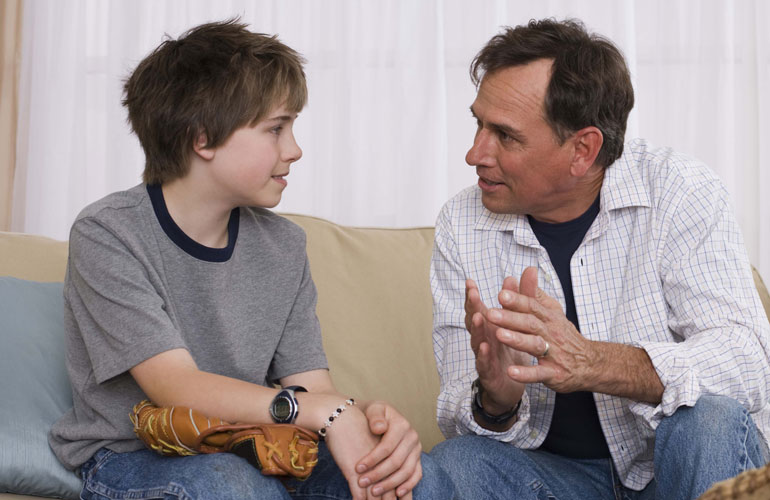It’s common for parents of school-age children to feel stuck in this dilemma. Our kids are in safe, loving homes now — wouldn’t talking about their early experiences just upset them, or cause feelings of grief or anger to resurface? Some parents believe that if their child knows all about the “bad stuff,” he will internalize it and develop an unhealthy self-image. But when a child knows the truth, and sees that you still love him, there is little risk, if any, that he will be harmed.
You probably expect your child to confide in you and to be honest, no matter what. Your child depends on you in the same way: to speak honestly and to help him make sense of his adoption story. Is it ever OK to share info selectively to “protect” your child? Imagine if a situation were reversed: It wouldn’t be OK if your teen told you he was staying at a friend’s house overnight, but avoided mentioning that no parents would be home because he didn’t want you to forbid the sleepover or get too worried. The bottom line is that you must be ready to discuss all the details of your child’s life before his adoption, even difficult adoption stories.
A Case for Conversation
If the past remained past, and did not influence the present, it might not seem necessary to talk about a child’s unhappy experiences. Consider, though, that a human life is a mosaic; we all have nice pieces, ugly pieces, broken pieces, and so on.
Children who have spent years living with birth family or in foster or orphanage care will probably have memories or some knowledge of their early years. If you withhold information from a child who is aware of the truth, she may view adoption (and herself) in a negative light. Say your child’s family has a history of alcoholism. If, as a family, you’ve discussed adoption, but glossed over a birth parent’s addiction, your child may conclude that you don’t know that detail about her birth family. She may feel burdened by her “secret,” and worry that, if you find out about that part of her past, you’ll reject her.
Even if memories are indistinct, a child who’s placed at an older age knows that something went wrong in her birth family. Otherwise, she would not have been available for adoption. Without accurate information as to why she is not with her birth family, a child will fantasize to fill in the gaps. And when children pick up on an adult’s reluctance to talk about their past, their fantasies are likely to be negative, and scarier than the truth. Honest discussions about all the pieces will give your child closure — and a sense of relief and confidence in her adoption.
Talk Early and Often
You might be wondering, “OK, if I am going to tell him the truth, how old should he be when I tell him the really tough stuff?” Don’t wait for some arbitrary age when you think he will be ready to cope with it. If parents wait until the child is 16 or 18 — common ages that people choose — the adolescent will feel betrayed that you concealed parts of his story for so long. He may think, “Does my story mean there is something negative about me?” and “What else do my parents know that they haven’t told me?”
Aside from earning your child’s trust, telling the truth early on allows you to revisit the information as he matures. Carefully consider and rehearse the age-appropriate language you’ll use. You can begin with simple truths, like “Your birth mother and birth father made some poor choices and weren’t able to start raising a family” or “Your birth mommy wasn’t healthy enough to take care of any baby.” You don’t have to share all the details with a younger child right away, but don’t say anything that you will later have to contradict.
Of course, you will need to present the truth to a 10-year-old differently than to a younger child. For instance, if you are discussing sexual abuse with a six-year-old, you might ask her what she remembers about being mistreated, and follow her lead through the rest of the conversation. A similar talk with an adolescent might include more depth and detail. [In future columns, I’ll share strategies on how you can present the truth on difficult topics, such as drug use or sexual abuse.]
Some parents ask if there are certain topics that shouldn’t be discussed with their children. I cannot think of any details that you should not share. Honest and frequent discussions will help your child sort out everything that was and is a part of his life. By having them, he will build his faith in you, and in his forever family.

